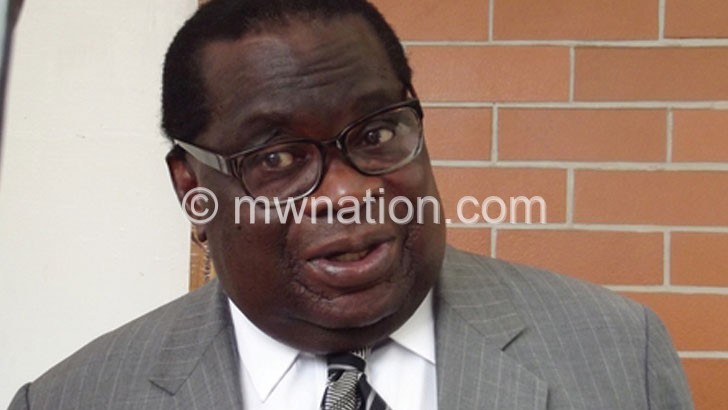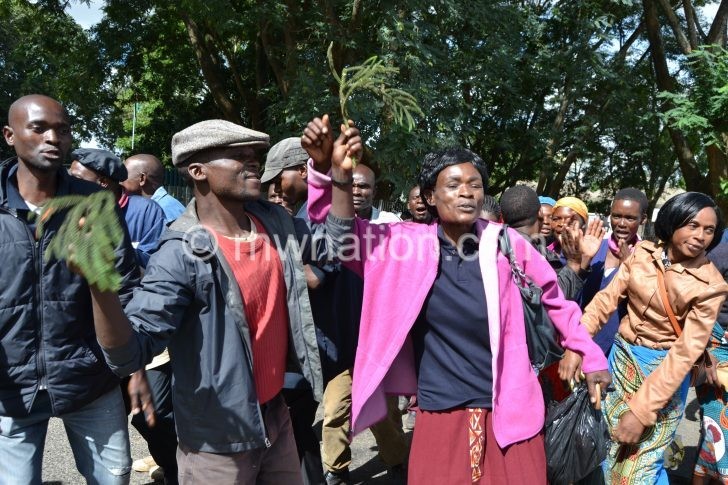Strikes worry govt—Goodall
Minister of Finance and Economic Planning Goodall Gondwe has said government is worried that continued strikes in public institutions might derail economic gains.
He argued the demands of salary adjustments should always be dictated by the performance of the economy.

Gondwe’s remarks follow industrial actions by several employees in the public sector pushing for better perks or conditions, a development experts have warned could bloat the wage bill which has increased by 11 percent from last year’s.
Said Gondwe: “But what people forget is that salaries for employees in public institutions are dictated by the performance of our economy. The standard formula we use is that the public wage bill is less than 25 percent of our national budget, or not more than seven percent of GDP [gross domestic product].

“And this is what we follow. As we speak, our public wage bill is less than 25 percent of the national budget and around 6.5 percent of the GDP. We are not ignorant of these standards and this is what we follow.”
The finance minister said that was the more reason government always insists on some limitations when considering salary adjustments. The GDP is one of the primary indicators used to gauge the health of a country’s economy.
It represents the total dollar value of all goods and services produced over a specific time period. Gondwe said regardless of the challenges, government is determined to ensure that the wage bill is not bloated.
“Whatever happens, the approved public wage bill is never bloated,” he said, insisting that people only needed to work hard to earn more.

Secretary to Treasury Ben Botolo has warned that if people continue demanding pay increases from the government coffers, the worse might come to the worst when government might decide to lay off some people to accommodate the expected increment the people demand.
In an interview, Botolo warned that people need to be prepared when they are making certain demands by analysing the economic situation and measure the implications that may follow.
He said this week the wage bill has gone up by K31 billion, representing an 11.4 percent increase—from last year’s K272 billion to K303.6 billion.
“So, much as we all agree the need to increase the wages for everyone, we should also look at the wage bill, it means that some people will have to be laid off which is not what government wants.
“We have contained this for a long time to accommodate everyone, but if the demands increase then people should know that their friends or themselves will lose jobs to allow others have the increment they want, so we have to look at both sides,” Botolo said.
Malawi has found itself in a situation back from 1994 at the dawn of democracy where civil servants and public officers in different institutions resort to industrial action to press for salary adjustments.
Last month, civil servants, who threatened a nationwide strike, received a 20 percent offer after they rejected a 10 percent the finance minister offered when he presented the 2017/18 National Budget.
Agriculture Development and Marketing Corporation (Admarc) and Lilongwe City Council (LCC) employees also went on strike a couple of days ago to force their employers to adjust their salaries and their demands were met.
Again last month, government managed to resolve a long outstanding strike by lecturers at University of Malawi (Unima) Chancellor College (Chanco) that lasted for about seven months, offering them 40 percent, 25 percent this year and 15 percent next year.
The move was meant to end salary disparities that existed with the colleges of Unima.
The Sunbird Ku Chawe deal, which both Government Negotiating Team (GNT) and representatives of the Unima lecturers agreed to put under wraps, offered the lecturers 25 percent salary adjustment effective July 1 2017.
And it was agreed and signed for that another 15 percent would be offered effective July 1 next year to match the 40 percent some lecturers at College of Medicine (CoM) have been receiving, ending the salary disparity issue in the process.
To make it a win-win deal, according to insiders that attended the Sunbird Ku Chawe meeting, the lecturers accepted to forgo their demand that the 40 percent be paid in arrears.
The International Monetary Fund (IMF) advocates a manageable public wage bill.





